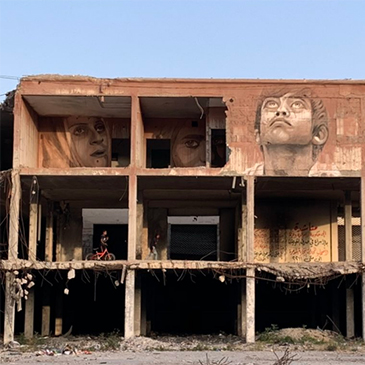The Centre for Business Research (CBR) has released a new report that focuses on the political economy aspects of health in Gaza. The special report also hopes to encourage collaborative reform of the health sector in the occupied Gaza Strip, and other conflict-affected areas, by local and international actors.
The report, entitled: “The Political Economy of Health in the Gaza Strip (Occupied Palestinian Territory)”, is authored by Dr Mona Jebril, a Research Fellow at the CBR. It is based on interdisciplinary qualitative research that has commenced in January 2019, as part of GCRF-UKRI project entitled: Research for Health in Conflict: Developing capability, partnerships and research in the Middle East and North Africa.
The report is guided by the following questions:
- What are the key historical and contextual factors determining the direction and formulation of health policy in Gaza? What role has the occupation and conflict played in shaping this?
- Who are the key actors/stakeholders in the health sector in Gaza?
- What are the characteristics of bargaining processes by which health policy in Gaza is made? How inclusive/exclusive are these processes and what are the main currencies used for bargaining?
- What key values/ideas underpin the identification of priority health policy issues/formulation of health policy?
- What main opportunities/incentives for health reform exist in each country, and what are the principal barriers to reform?

Professor Simon Deakin, CBR Director and Professor of Law at the University of Cambridge, who wrote the foreword for the report has described it as:
“An important report in terms of its subject-matter, its approach and its findings.
“Much is written about Gaza, in particular when the crisis there is periodically escalated, but little is known about the conditions of life for its population. There is a dearth of systematic research on Gazan society and institutions. This report is a dispassionate account, which is sobering in its implications.”
“In detail, and with evidence of a kind which is all too infrequently available, it offers a diagnosis, and the beginning of a way forward, for a situation which those who read it will surely regard as unsustainable.”



Leave a Reply